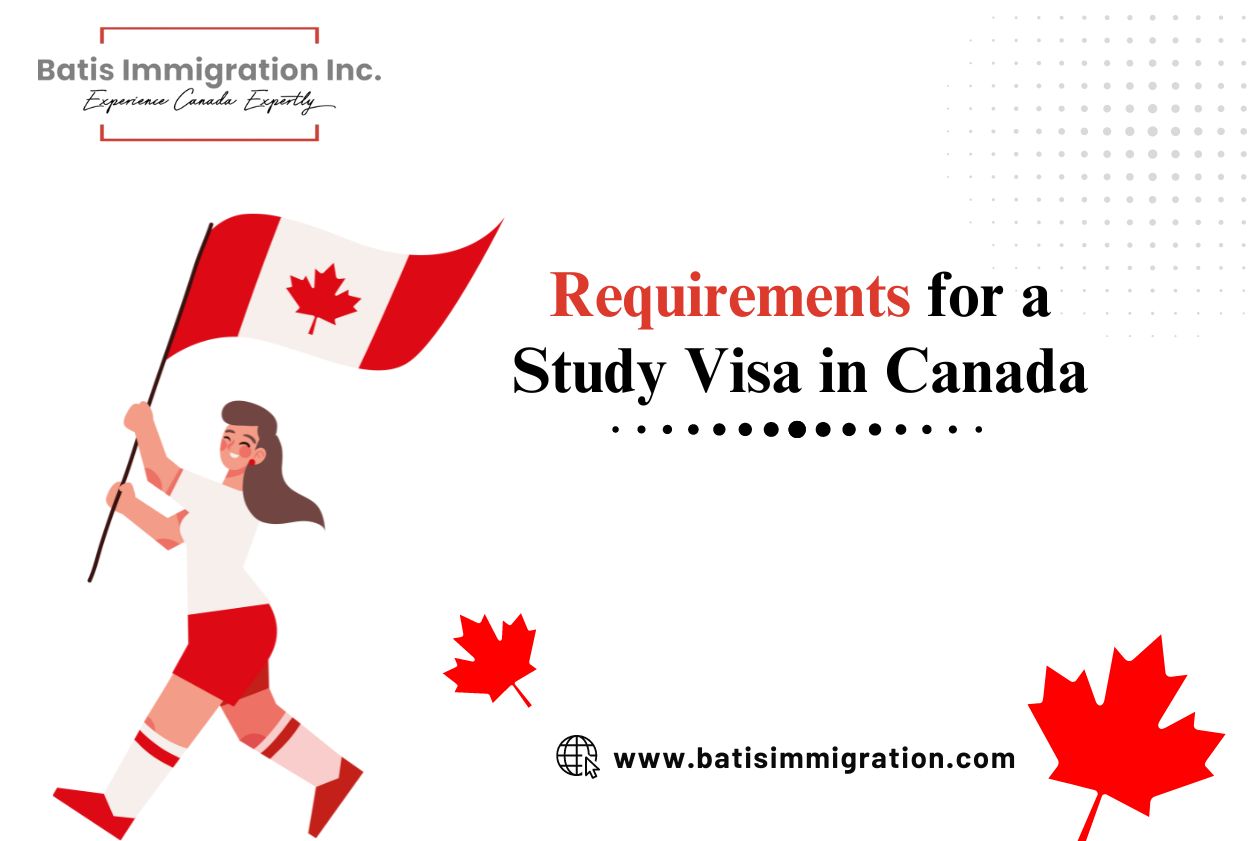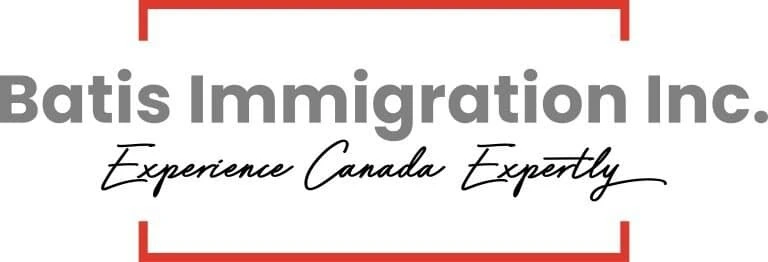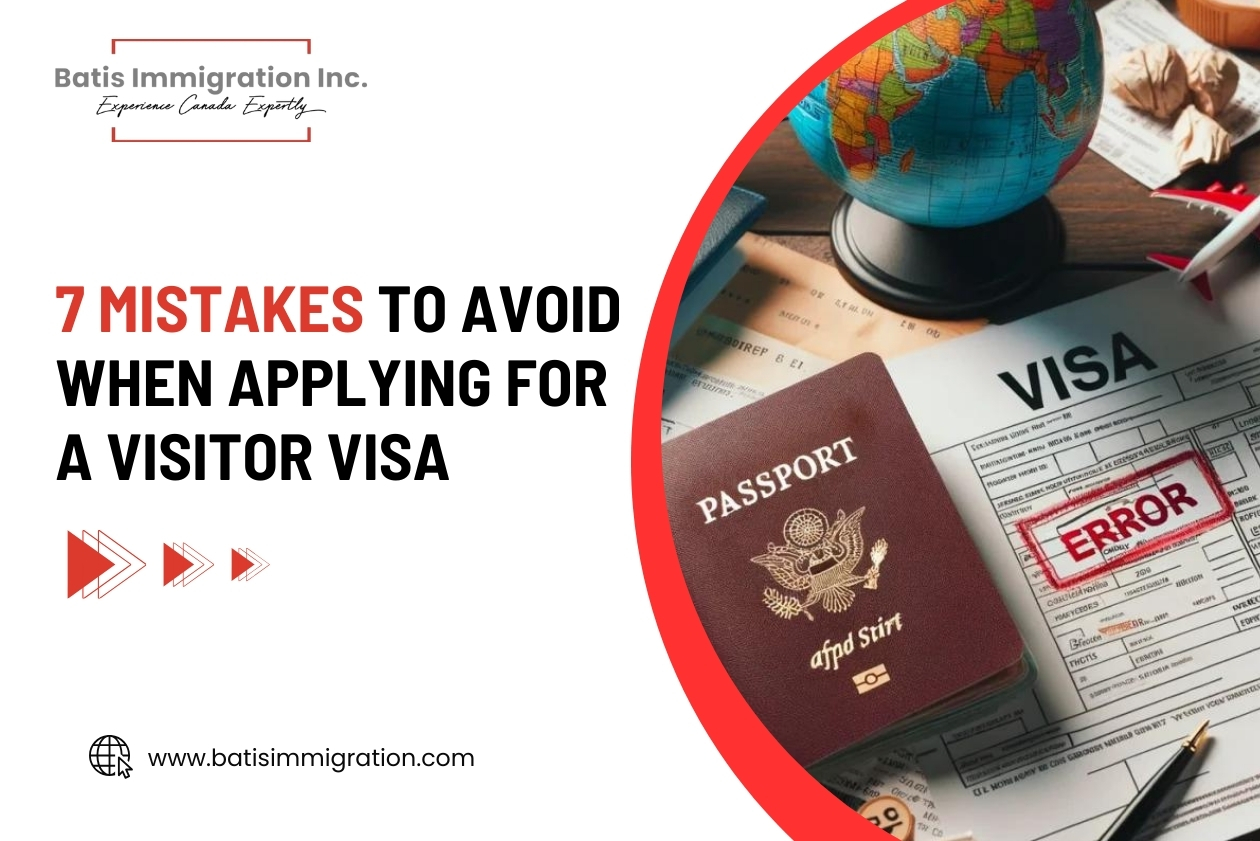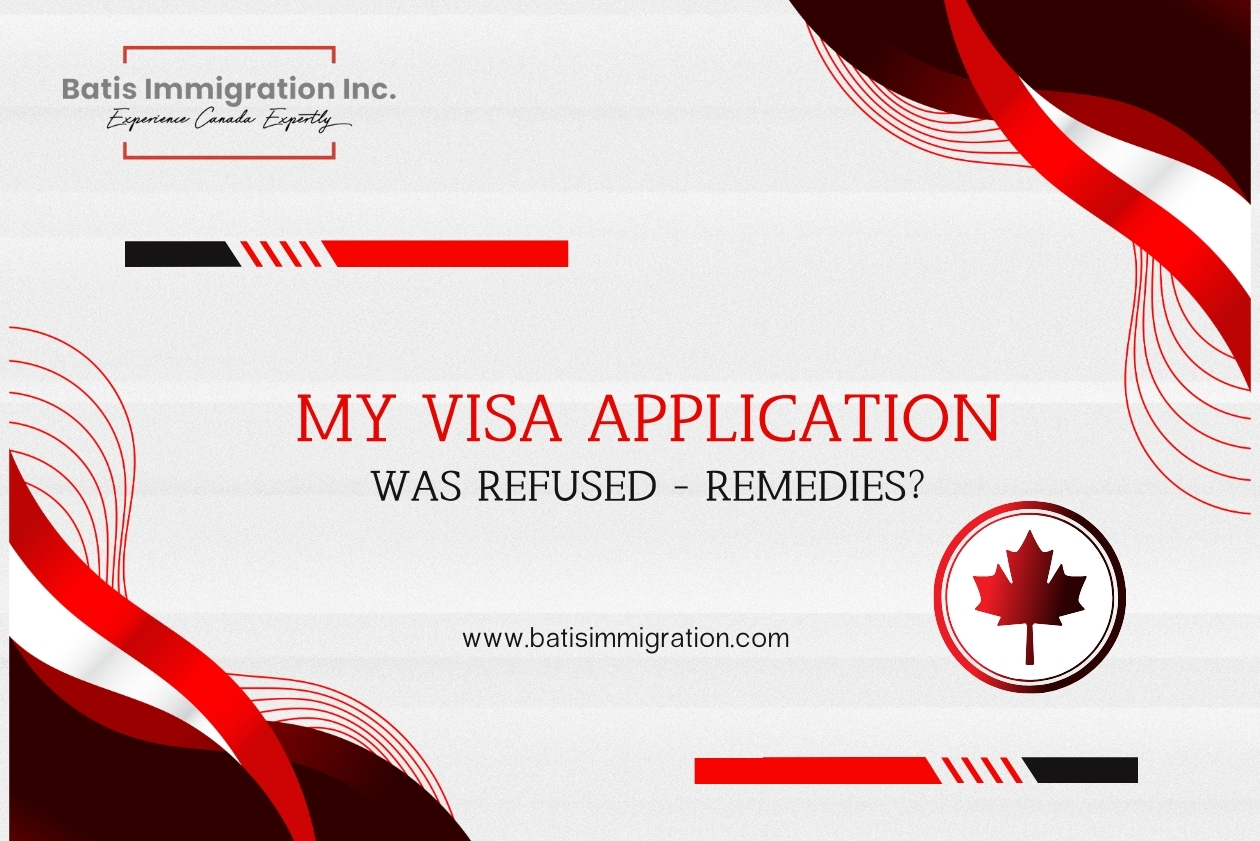Are you dreaming of studying in Canada? It’s an exciting opportunity, but there are a few important things to understand about getting a study permit.

Are you dreaming of studying in Canada? It’s an exciting opportunity, but there are a few important things to understand about getting a study permit. It is a document that allows you to study at a Canadian educational institution. While most students need this permit, there are exceptions based on the length of your program or your status in Canada. To get a study visa, you’ll need an acceptance letter from a Canadian school, proof that you can pay for your studies and living expenses, and you must comply with Canadian laws. Let’s delve into the details to help you prepare for study in Canada.
Table of Contents
What are the Eligibility Criteria for a Study Visa?
To apply for a study visa, known as a study permit in Canada, several specific requirements must be met to ensure eligibility:
Acceptance at a Designated Learning Institution (DLI)
You must have an acceptance letter from a Canadian educational institution (university, college, or other designated learning institution) that is approved by the Canadian government.
Proof of Sufficient Funds
You must show that you have adequate funds to cover:
- Tuition fees,
- Living expenses for yourself,
- Living expenses for any family members accompanying you to Canada, and
- Return travel arrangements for yourself and any accompanying family members.
Good Health and Medical Examination
Applicants need to undergo a medical evaluation to confirm their good health. This requirement varies based on their home country and the duration of their stay in Canada.
No Criminal Record
You must provide a police certificate or other documentation to prove you have no criminal record. This requirement ensures you are admissible to Canada.
Intent to Leave Canada after Studies
You must show that you intend to leave Canada once your study permit expires. This can be demonstrated through ties to your home country, such as family, job prospects, or assets.
Compliance with Canadian Laws
You must obey Canadian laws during your stay in Canada and provide any additional documents or information as requested by immigration officials.
Provincial Attestation Letter (PAL) or Territorial Attestation Letter (TAL)
For most of the study permit applications in Canada, submitting a provincial attestation letter (PAL) or a territorial attestation letter (TAL) is mandatory. Unless you meet one of the exceptions, you must submit a PAL/TAL with your application, not after. This requirement applies even if you’re applying for a prerequisite course or program, including language courses or programs, and for each study permit applicant, even if you’re applying as a family and submitting your applications together.
Who doesn’t need a PAL/TAL
Certain applicants are exempt from providing a PAL/TAL when applying for a study permit. You do not need to submit a PAL/TAL if you fall into any of the following categories:
1. Educational Level Exemptions
- You are enrolling in a preschool, primary school (including kindergarten), or secondary school (up to grade 12).
- You are attending a federally designated military college.
- You are studying in Quebec in a vocational training program that leads to:
- A diploma of vocational studies (DVS)
- An attestation of vocational specialization (AVS)
- A skills training certificate (STC)
2. Advanced Degree Exemptions
- You are seeking admission to a master’s or doctoral degree program.
3. Scholarship and Public Policy Exemptions
- You have received a scholarship from Global Affairs Canada.
- You qualify for an exemption based on a public policy related to a migration response to a crisis or other significant pressures.
4. Situations Within Canada
- You are already in Canada and are applying for a study permit extension or to restore your status.
- You hold a work permit (unless it was obtained through International Experience Canada).
- You are a temporary resident engaged in a visiting or exchange student program at a designated learning institution (DLI).
- You are under a removal order but cannot be deported at this time.
- You possess a temporary resident permit valid for at least six months.
- You are acknowledged as a protected person.
5. Permanent Residence Eligibility
You are eligible for permanent residence based on humanitarian and compassionate grounds, a current public policy, or as a spouse or common-law partner (through the in-Canada spouse or common-law partner class).
6. Family Members of Foreign Nationals
- You are a family member of a foreign national residing in Canada who is:
- A study permit holder
- A work permit holder
- A temporary resident permit holder with a permit valid for at least six months
- A member of a foreign military under the Visiting Forces Act
- An accredited foreign government representative
- A participant in certain sports activities or events
- A worker associated with a foreign news company
- A religious worker
- A protected person
- Eligible for permanent residence on humanitarian and compassionate grounds, a current public policy, or as a spouse or common-law partner (through the in-Canada spouse or common-law partner class).
If you do not include a PAL/TAL with your study permit application, you must provide evidence that you qualify for one of the exceptions mentioned above.
Who Doesn’t Need a Study Permit?
In Canada, most international students need a study permit to attend school there. However, there are specific cases where you might not need a study permit:
- Short-term Students: If you’re going to Canada for a program that lasts 6 months or less, such as a short course, you won’t need a study permit.
- Family or Staff of Foreign Representatives: If someone in your family works for another country and is recognized by Global Affairs Canada, you might not need a study permit.
- Members of Foreign Armed Forces: If you’re part of another country’s military and in Canada for official duties, you might not need a study permit.
- Registered Indians in Canada: If you’re a Registered Indian in Canada, you can study there without needing a study permit, even if you’re a citizen of another country.
How to Apply for a Canadian Study Visa?
Applying for a Canada study visa is an exciting journey that begins with several important steps. Here is a straightforward guide to assist you through the process:
Step By Step Guide to Apply for Canadian Study Visa
Here is an 8-step process to apply for a study visa to Canada:
1. Acceptance Letter
First, you need to be accepted by a Canadian educational institution. They will provide you with an acceptance letter confirming your admission.
2. Prepare Required Documents
Gather the necessary documents, including
- Evidence of financial backing to fund tuition fees, living costs, and expenses for travel back home.
- A clear criminal record check.
- Any additional documents mandated by the Canadian government.
3. Fill Out Application Forms
Batis Immigration can assist you in completing the study permit application forms accurately, ensuring all required information is provided and nothing is missed. We double-check for completeness, which helps streamline the process and increases your likelihood of approval.
4. Pay Application Fees
Pay the required application fees. These fees can vary, so it’s important to check the current fee structure.
5. Submit Your Application
Submit your completed application along with all supporting documents to the appropriate Canadian visa office or online through the Immigration, Refugees and Citizenship Canada (IRCC) website.
6. Attend Interviews or Medical Exams (if required)
Depending on your country of origin and the specifics of your application, you may need to attend an interview or undergo a medical examination.
7. Wait for Processing
Once submitted, your application will be reviewed by Canadian immigration officials. Processing times can vary, so it’s important to apply well in advance of your intended start date.
8. Receive Your Study Permit
Upon approval of your application, you will be issued a study permit. This document allows you to study in Canada at your chosen educational institution.
What Happens If Your Study Permit Expires While in Canada?
If your study permit expires while you are in Canada, it’s important to take action promptly to ensure you remain compliant with Canadian immigration laws. Here’s what happens and what you need to do:
1. Understanding Study Permit Expiry
Legal Status
When your study permit expires, your legal status as a student in Canada also expires. This means you are no longer authorized to study or work (if applicable) in Canada until you resolve your permit status.
Temporary Resident Status
You generally become a temporary resident in Canada after your study permit expires. This status allows you to stay in the country temporarily, but you cannot study or work without a valid permit.
2. What You Need to Do
If your study permit is expiring soon or has already expired, it’s crucial to take immediate action to maintain your legal status in Canada. Here’s what you need to do:
Apply for Permit Extension
If you plan to continue studying or if your program is extended, you must apply to extend your study permit before it expires. This involves submitting an application, paying fees, and providing updated documents like a new letter of acceptance and proof of funds.
Restore Your Status
If your study permit has already expired, you can apply to restore your status as a student within 90 days of losing it. You must still meet the initial requirements for a study permit and pay additional restoration fees.
Temporary Resident Visa (TRV) Renewal
If your study permit renewal requires a TRV and your TRV has also expired, you must apply for a new TRV along with your study permit extension or restoration application.
3. Consequences of Delay
Delaying your permit extension or restoration application beyond the allowed period could lead to serious consequences. You risk losing the right to study and work in Canada and may face deportation. Moreover, staying in Canada without legal status can impact your ability to return in the future or apply for other immigration benefits.
What Support Services are Available for International Students in Canada?
Canada offers a wide range of support services to help international students adjust to their new environment and succeed in their studies. Here are some of the essential support services available:
1. Orientation Programs
Many Canadian universities and colleges provide orientation programs for new international students. These programs introduce students to the campus, local community, and available resources, helping them settle in and feel more comfortable in their new surroundings.
2. Academic Support
Institutions often offer various academic support services, such as:
- Tutoring and Writing Centres: Assistance with coursework, assignments, and improving writing skills.
- Study Groups: Organized sessions to help students collaborate and learn together.
- Library Services: Access to research materials, study spaces, and librarian assistance.
3. Health and Counselling Services
The majority of establishments have counselling and health services that offer:
- Medical Services: On-campus clinics offering general health care, vaccinations, and emergency services.
- Mental Health Support: Counselling and psychological services to help students cope with stress, anxiety, and other mental health issues.
4. Financial Aid and Scholarships
Financial support is available through:
- Scholarships and Bursaries: Merit-based and need-based financial awards to help with tuition and living expenses.
- Emergency Loans: Short-term financial assistance for unexpected expenses.
5. Housing Assistance
Support for finding and securing accommodation includes:
- On-Campus Housing: Dormitories and residence halls are managed by the institution.
- Off-Campus Housing Services: Assistance in finding apartments or shared housing in the local community.
6. Career Services
Career support to help students prepare for the job market includes:
- Career Counseling: Guidance on career planning and job search strategies.
- Job Fairs: Opportunities to connect with potential employers and discover job openings.
- Resume Workshops: Help with creating effective resumes and cover letters.
7. Language Support
For students who need to improve their English or French proficiency, many institutions offer:
- Language Courses: Classes focused on language skills needed for academic success.
- Conversation Partners: Programs that pair international students with native speakers for practice.
8. Student Associations and Clubs
Joining student groups can provide social support and networking opportunities:
- International Student Associations: Groups specifically for international students to connect and support each other.
- Cultural Clubs: Clubs celebrating different cultures and fostering intercultural exchange.
9. Legal and Immigration Support
Services to help with legal and immigration issues include:
- Visa and Permit Guidance: Assistance with applications and renewals for study permits, work permits, and visas.
- Legal Advice: Access to lawyers or legal advisors for issues like tenancy rights and employment laws.
10. Community Engagement
Motivating students to become active in their neighbourhood by:
- Volunteer Programs: Opportunities to volunteer and gain valuable experience.
- Local Events: Information about cultural and social events in the community.
Wrapping Up
Studying in Canada is a wonderful opportunity, but it requires careful planning. To get a study permit, you need an acceptance letter from a Canadian school. Additionally, you need to show proof of funding for your studies and living costs. When you immigrate to Canada, make sure to strictly follow Canadian laws. If your permit expires, you must act quickly to extend it or restore your status to avoid problems.
Canada also provides many helpful services for international students. These include orientation programs designed to assist you in settling in. There are also academic support services such as tutoring and libraries, health services, financial aid options, housing assistance, and career support available. Getting involved in student groups and community activities can also enrich your experience.
You can consult Batis Immigration if you want to relocate to Canada as well as get Canadian citizenship. We specialize in Canadian immigration services, assisting aspiring students like you in applying for study permits. We ensure that all necessary documents are completed with precision. Our team guides you through the application process, verifies completeness, and enhances your chances of approval. Contact us now to accelerate your Canadian study visa process!



